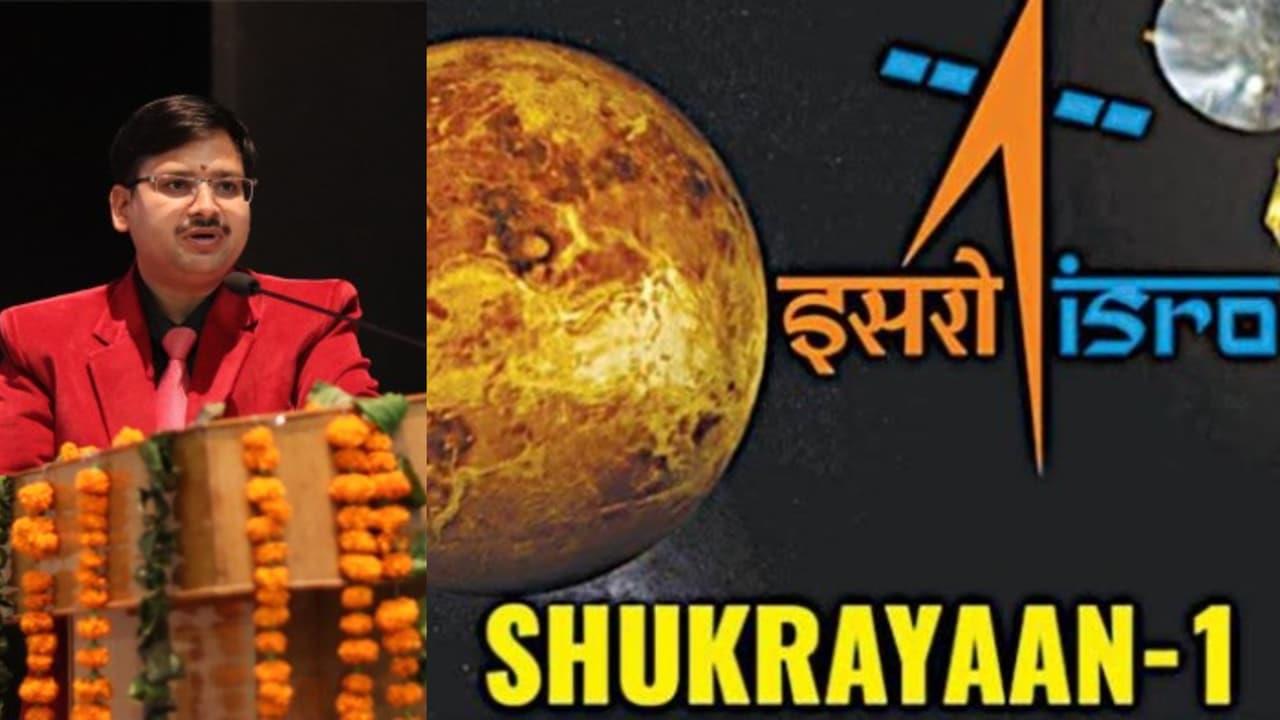
India's Mission Venus: Garhwal University Professor Selected For ISRO's First Venus Orbiter Mission
In a proud moment for Indian science, Dr Alok Sagar Gautam, Assistant Professor in the Department of Physics at Hemvati Nandan Bahuguna Garhwal University, has been selected to contribute to the Indian Space Research Organisation's (ISRO) upcoming Venus Orbiter Mission, also known as Shukrayaan-1, according to a report by India Today. This marks India's first dedicated attempt to explore Venus, one of Earth's closest planetary neighbours and one of the most mysterious planets in our solar system.
Participation in ISRO's national meeting
Dr Gautam attended a two-day national meeting at ISRO headquarters in Bengaluru on October 29 and 30, where scientists discussed key research themes for the mission. The meeting focused on understanding Venus's surface and subsurface structure, its atmosphere and ionosphere, and the influence of solar activity on the planet's dynamic systems.
During the event, Dr Gautam presented his research and took part in a panel discussion on topics such as modelling Venus's atmosphere, retrieval and simulation techniques, and the use of historical atmospheric data.
Focus of the Venus Orbiter Mission
The Venus Orbiter Mission aims to conduct high-resolution radar imaging and detailed studies of cloud formation, surface processes, and gas dynamics. Scientists believe that this mission will help explain why Venus, despite being similar in size and position to Earth, evolved so differently.
By studying the planet's thick atmosphere and extreme greenhouse conditions, researchers hope to gain deeper insight into planetary evolution and climate processes, both on Venus and Earth.
Dr Gautam's expertise in atmospheric and environmental physics is expected to make a significant contribution to the mission's success.
Scientific background and contributions
Dr Gautam has an impressive record of research and exploration. He was part of the 28th Indian Scientific Expedition to Antarctica (XXVIII ISEA), where he collected crucial environmental data in extreme conditions.
He has carried out field studies on black carbon and aerosols in the Satopanth Glacier and contributed to major national projects such as STORM and CAIPEEX, run by the Ministry of Earth Sciences and the Indian Institute of Tropical Meteorology (IITM), Pune.
Dr Gautam earned his PhD from IITM Pune and also received a Junior Associateship from the International Centre for Theoretical Physics (ICTP), Italy.
Work at Garhwal University
Since joining Hemvati Nandan Bahuguna Garhwal University in July 2013, Dr Gautam has been actively researching atmospheric aerosols, climate change, cloud dynamics, and air quality monitoring. He has also established India's highest cloud observatory (HCO) at the Swami Ram Teerth Campus in Srinagar, Uttarakhand, which helps scientists study weather patterns in the Garhwal Himalayas.
His work has been published in several international journals, where he reported new findings on ion and aerosol behaviour in the atmosphere. Dr Gautam's research projects are supported by the Department of Science and Technology (DST) and the Science and Engineering Board (SERB).
Awards and recognition
Dr Gautam has received numerous national and international honours, including the Environmentalist of the Year Award (2019). He is also a member of several scientific committees and professional associations, reflecting his active role in promoting research and environmental science in India.
Expressing his gratitude, according to the India Today report, Dr Gautam said that being chosen for ISRO's Venus mission was a 'great honour' and that it would inspire students of Garhwal University and other young researchers to pursue careers in space and planetary science.
He added that the mission represents a new step for India in interplanetary exploration and will help strengthen India's presence in global space research.
A milestone for Indian space science
The Venus Orbiter Mission (Shukrayaan-1) is expected to mark a major milestone in India's interplanetary exploration, following the success of Chandrayaan and Mangalyaan missions. By including young researchers like Dr Gautam, ISRO continues to encourage collaboration between universities and national research institutions, ensuring that India's next generation of scientists plays a leading role in future space discoveries.
Legal Disclaimer:
MENAFN provides the
information “as is” without warranty of any kind. We do not accept
any responsibility or liability for the accuracy, content, images,
videos, licenses, completeness, legality, or reliability of the information
contained in this article. If you have any complaints or copyright
issues related to this article, kindly contact the provider above.


















Comments
No comment